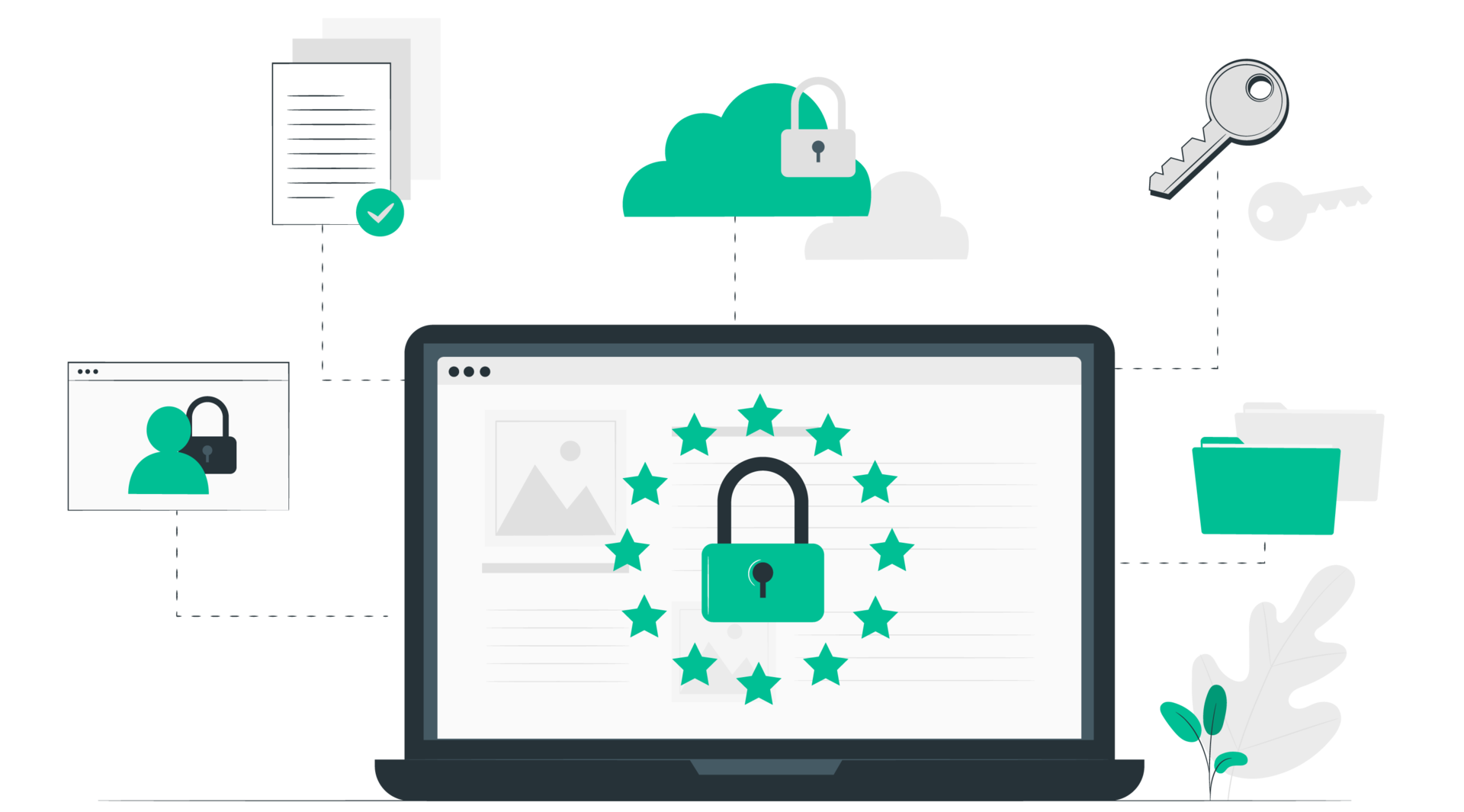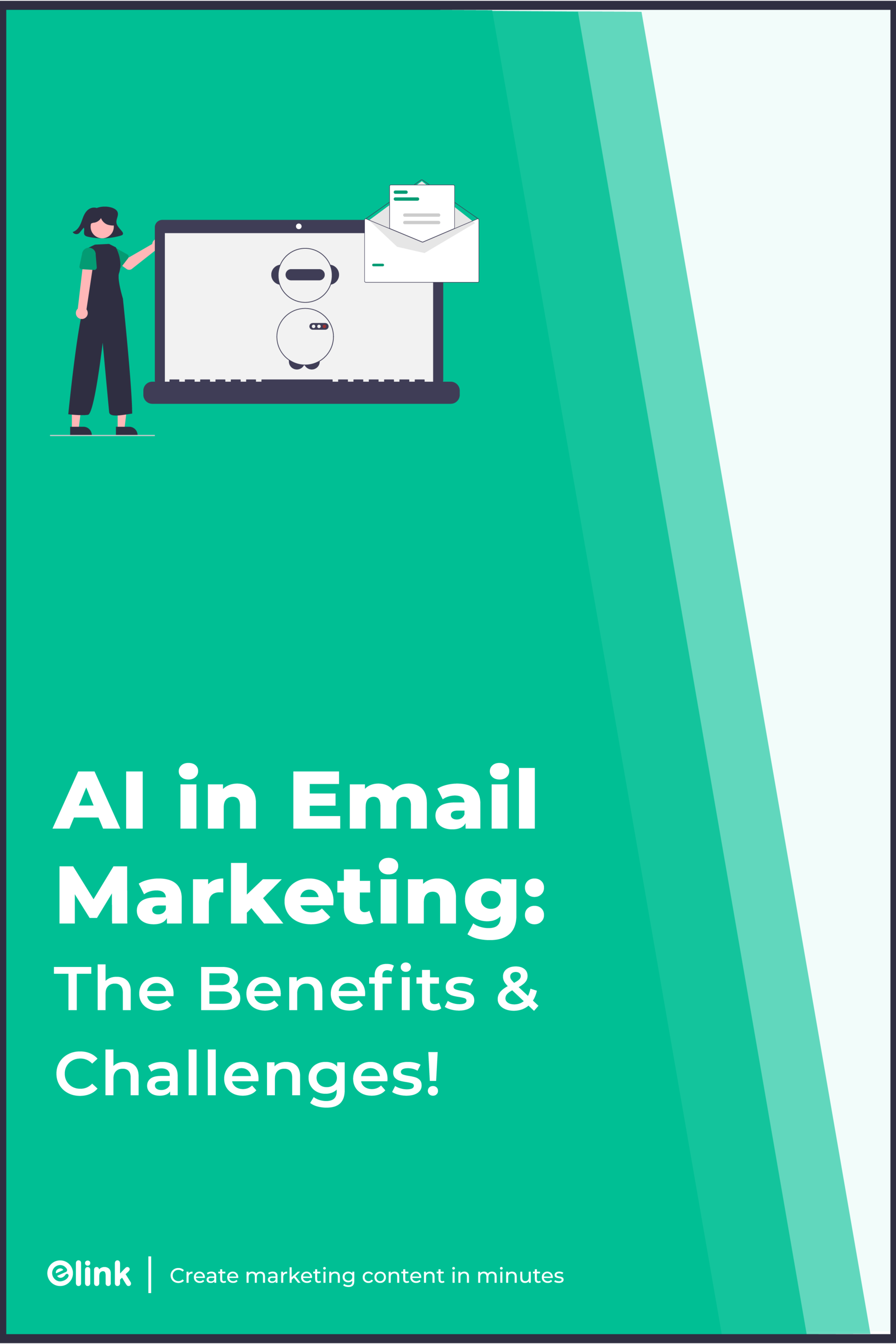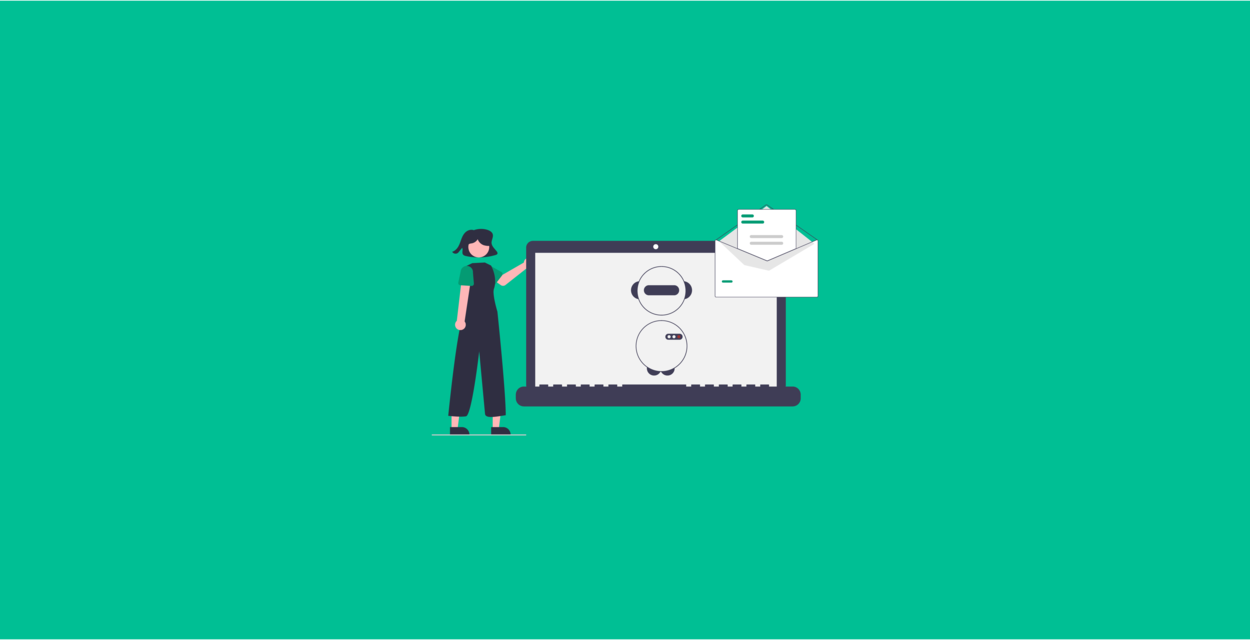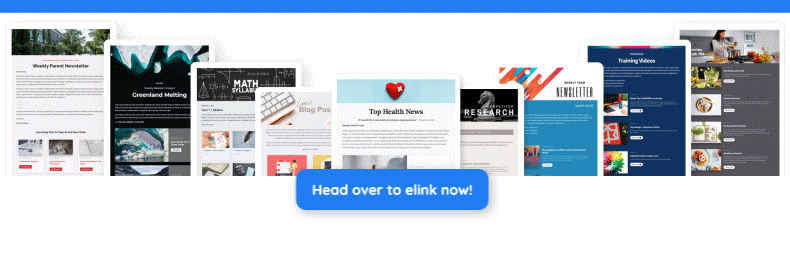Picture this: you wake up to a new day, grab your phone, and check your email. Amidst the dozens of promotional emails screaming for your attention, you see one that stands out. It’s personalized, with content that speaks directly to your interests and needs. It’s almost as if the email was tailored specifically for you, and it’s so engaging that you can’t help but click through to learn more.
Welcome to the world of AI-powered email marketing. With the help of Artificial Intelligence, marketers can now create personalized, relevant, and timely email campaigns that cut through the noise and grab their subscribers’ attention. And if you’re a business owner or marketer, incorporating AI into your email marketing strategy is crucial to stay ahead.
This article will explore how AI can transform your email marketing game, from automating workflows to creating hyper-personalized content.
So, whether you’re a seasoned pro or just starting with email marketing, sit tight, grab your coffee, and let’s explore the exciting world of AI-powered email marketing!
AI in Email Marketing
First off, what is AI in email marketing?
Well, it’s exactly what it sounds like – using artificial intelligence technology to optimize and personalize your email marketing campaigns. AI can help you analyze customer data, identify patterns, and make data-driven decisions about your emails’ content, timing, and targeting.
With the right tools and techniques, you can use AI to engage your audience, boost conversions, and achieve better results than ever before.
So, should your business consider incorporating Artificial Intelligence into your email marketing strategy?
That’s up to you to decide! But as AI technology advances, it’s worth exploring the benefits and challenges of AI in email marketing and considering whether it could help take your campaigns to the next level.
Benefits of Using AI in Email Marketing
AI has become an increasingly popular tool in the digital marketing world and for good reason. It can help businesses save time and resources while improving their email marketing strategy.
So, let’s dive in and explore some of the benefits of incorporating AI into your email marketing efforts!
1. Personalization
Did you know personalized emails can increase open rates by 29% and click-through rates by 41%?
With AI, you can gather data about your subscribers and use it to tailor your emails to their specific interests and behaviors. This can include things like their past purchases, their browsing history on your website, and even their social media activity.
Using this data, you can create more targeted and relevant emails to each subscriber. This can lead to higher open rates, click-through rates, and, ultimately, more conversions.
Plus, AI can also help you automate the process of personalization. With AI-powered tools, you can set up triggers and rules that automatically send personalized emails based on specific actions or behaviors.
So, if you want to take your email marketing to the next level, using AI for personalization is worth considering. It can help you create more effective email campaigns and build stronger customer relationships.
2. Segmentation
Segmentation divides your email list into smaller groups based on specific criteria such as demographics, behavior, and interests. By doing this, you can send more targeted and relevant messages to each group, leading to higher engagement and conversion rates. Did you know targeted emails can drive up to 77% of your overall ROI?
Now, with the help of AI, you can take segmentation to a whole new level. AI algorithms can analyze your email list and identify patterns and similarities among subscribers that may not be immediately apparent to a human. This can help you create highly targeted segments and personalize your messages for each subscriber.
For example, you can use AI to segment your list based on:
- Engagement levels: Send more targeted messages to subscribers who have previously opened, clicked, or purchased from your emails.
- Interests: Send content relevant to each subscriber’s interests and preferences.
- Demographics: Send messages tailored to each subscriber’s age, gender, location, or other demographic factors.
- Predictive behaviour: Predict which subscribers are most likely to engage or purchase based on their past behaviour and send targeted messages to these subscribers.
Overall, using AI to segment your email list can help you increase your open and click-through rates, reduce unsubscribe rates, and ultimately, drive more conversions and revenue for your business. So, if you’re not already using AI in your email marketing strategy, it may be worth considering!
3. Predictive Analytics

AI in email marketing, particularly predictive analytics, has several benefits. By analyzing large data sets, AI algorithms can identify patterns and predict user behavior and preferences. This allows marketers to create more targeted and personalized email campaigns, increasing engagement and conversions. Moreover, AI can automate certain tasks, such as segmentation and targeted email sending, saving time and effort.
In summary, AI can significantly improve the effectiveness of email marketing campaigns by providing valuable insights and automating certain tasks. With the continued advancement of AI technology, we can expect to see even more innovative and effective uses of AI in the marketing industry.
4. Automation
AI technology can automate many aspects of your email marketing campaign, including segmenting your email list, personalizing your messages, and scheduling your emails. With automation, you can save time and effort that would have otherwise been spent manually carrying out these tasks.
Moreover, AI can help you deliver more targeted and personalized messages to your subscribers. By analyzing browsing history, purchase behavior, and email interactions, AI algorithms can create individualized messages more likely to resonate with each subscriber.
This, in turn, can lead to higher engagement rates and better conversion rates for your email marketing campaigns. With AI automation, you can also get real-time insights into your emails’ performance, allowing you to make data-driven decisions and optimize your campaigns for even better results.
Overall, using AI in email marketing can streamline your processes, improve your messaging, and drive better results for your business.
Read More: Email Automation: Definition, Benefits & Tools!
5. A/B Testing
A/B testing is a crucial part of email marketing, as it allows you to test different versions of your emails to see which one performs better. Traditionally, A/B testing required much manual work and time, as you had to create different versions of your emails, send them out to your subscribers, and then manually analyze the results.
But with the help of AI, A/B testing has become much easier and more efficient. Artificial Intelligence can automatically create different versions of your emails, test them against each other, and analyze the results in real-time. This means that you can quickly and easily identify which version of your email performs better and make adjustments as needed.
In addition to saving time and effort, using AI for A/B testing can lead to more accurate results. AI algorithms can analyze data much faster than humans can, and they can identify patterns and trends that may not be immediately apparent to us.
Using AI for A/B testing in email marketing can help you improve your email campaigns and increase your engagement rates with your subscribers.
Want to know the best part?
You don’t need to be a tech genius to use these tools. AI-powered email marketing platforms are user-friendly and intuitive, so you can focus on creating killer content instead of getting lost in the tech.
We’ve covered some seriously cool benefits of using AI in email marketing, but it’s not all sunshine and rainbows. As with any technology, a few challenges come with incorporating AI into your email campaigns.
What are the Challenges that come with using AI in emails?
While AI certainly has the potential to revolutionize the way we approach email marketing, some significant challenges need to be overcome.
Data Quality
One of the biggest challenges with AI in email marketing is ensuring the quality of the data used to train the AI algorithms. AI algorithms cannot make accurate predictions or recommendations without accurate and complete data.
This means that it’s essential to have a reliable data collection and storage system in place. Data must be accurate, up-to-date, and relevant to the marketing campaign. If the data is incomplete or inaccurate, it can lead to incorrect insights and recommendations, resulting in ineffective campaigns and lost revenue.
Moreover, data privacy is also an important aspect that needs to be considered. It’s important to ensure that the data being used is collected and stored in compliance with relevant laws and regulations. Data privacy breaches can have serious consequences for both the customers and the company.
In conclusion, while AI can bring immense benefits to email marketing, ensuring the quality of the data being used is crucial. With the right data collection, storage, and privacy measures, AI can help companies create more effective, personalized email campaigns that deliver better results.
Privacy Concerns

When using artificial intelligence (AI) in email marketing, privacy concerns are one of the most significant challenges businesses face. While AI can help businesses personalize their email marketing campaigns and improve customer engagement, it also requires collecting and analyzing customer data.
According to a study by Litmus, a marketing research firm, 75% of consumers believe personalized emails are more engaging than generic ones. However, the same study also found that 43% of consumers are concerned about how businesses use their personal information.
Another survey by Pew Research Center found that 81% of Americans say they have lost control over how their personal information is collected and used by companies. Additionally, 72% of Americans feel that all or most of what they do online is tracked by advertisers, technology companies, or other groups.
These statistics highlight the need for businesses to be transparent about using AI and customer data in their email marketing campaigns. By being clear about what data they are collecting and how they are using it, businesses can help alleviate some of the privacy concerns consumers have.
Overall, while AI can provide many benefits to email marketing campaigns, businesses need to be mindful of privacy concerns and take steps to ensure that they are not violating their customers’ trust. By being transparent and ethical in their use of AI, businesses can build stronger relationships with their customers and improve the effectiveness of their email marketing campaigns.
Mistakes
Businesses invest heavily in AI-powered email marketing tools to automate their email campaigns.
However, AI algorithms are imperfect and sometimes make mistakes that can impact email marketing campaigns. For instance, a report by Litmus showed that 21% of email marketing messages end up in the spam folder, and AI algorithms can sometimes misclassify legitimate emails as spam, resulting in a lower deliverability rate.
Moreover, AI algorithms can also misinterpret customer data, leading to incorrect personalization or segmentation. In a survey conducted by Emarsys, 30% of respondents cited inaccurate personalization as a significant challenge in their email marketing efforts.
Therefore, while AI can significantly enhance email marketing efforts, it is crucial to remember that these algorithms are not infallible. Businesses need to monitor and optimize their AI-powered campaigns regularly.
There is a Learning Curve
While AI can be incredibly powerful and efficient, it’s also complex and requires a deep understanding of how it works to use it effectively. This means you may need to invest time and resources into training your team to use AI tools and software for email marketing.
Another challenge is ensuring that your AI algorithms are accurate and reliable. This requires ongoing testing and refinement to ensure that your AI-powered email campaigns deliver the right messages to the right audiences at the right time.
Despite these challenges, using AI in email marketing can be a game changer for businesses looking to improve the effectiveness of their campaigns. It can help you personalize your messages, automate workflows, and deliver better results. So, while there may be a learning curve associated with using AI in email marketing, it’s worth the effort!
Now that we’ve discussed the challenges and benefits of using AI in email marketing, it’s time to dive into how to implement it.
But How Can You Successfully Use AI in Email Marketing?
If you’re wondering how to use AI in email marketing successfully, there are a few key steps you can take to make the most of this powerful technology. Here are some tips to keep in mind:
Start with a Clear Goal
The first step to incorporating AI in your email marketing is clearly defining your objective. Determine what you want to achieve through your email campaigns. It could be increasing sales, boosting website traffic, improving customer engagement or retention, or promoting a new product or service. Whatever your goal is, it is important to clearly understand it, as it will guide your overall email marketing strategy.
Use AI-Powered Personalization
Personalization has been a key trend in email marketing. With the advent of AI, personalizing your email campaigns is easier than ever. AI can analyze vast amounts of data about your subscribers, including their behavior, preferences, and purchase history, and dynamically use this information to create personalized email content. For example, AI can suggest products or services that the subscriber will likely be interested in based on their previous purchases or browsing history. Personalization increases the relevance of your emails and helps build a stronger connection with your subscribers.
Automate Your Workflows
Another way to incorporate AI into your email marketing strategy is to automate your workflows. This involves using machine learning algorithms to automate routine tasks, such as segmenting your audience, optimizing your sending schedule, or creating personalized subject lines and content. Automation helps improve your email campaigns’ efficiency while ensuring that each subscriber receives the right message at the right time. By automating your workflows, you can also free up your time to focus on more strategic tasks, such as analyzing your results and optimizing your email strategy.
Test and Refine your Approach
Finally, it’s essential to continually test and refine your approach. AI is a powerful tool, but it’s not a magic bullet. To ensure that your email campaigns are effective, you must continually monitor and analyze your results. Use A/B testing to test different elements of your emails, such as subject lines, content, and CTAs, and use the data to refine your approach over time. AI can help you analyze your results more efficiently, identifying trends and insights you may have missed manually. By continually testing and refining your approach, you can ensure that your email campaigns are always optimized for maximum impact.
By following these tips, you can use AI to enhance your email marketing efforts and achieve better results for your business.
Conclusion
In short, AI in email marketing is a game-changer, allowing businesses of all sizes to create more effective and engaging email campaigns than ever before. So, if you want to take your email marketing game to the next level, incorporating AI into your strategy is the way to go.
With endless possibilities and new advancements, the future of AI in email marketing is bright, and the opportunities are endless.
Further Reads:
Email Marketing Renaissance: 23 Trending Terms for Success in 2023
Get the Edge: Email Marketing Trends You Need to Know in 2023!
Video Email Marketing: Engage Your Audience and Drive Conversions
Boost Your Sales with a Winning Email Marketing Funnel!






